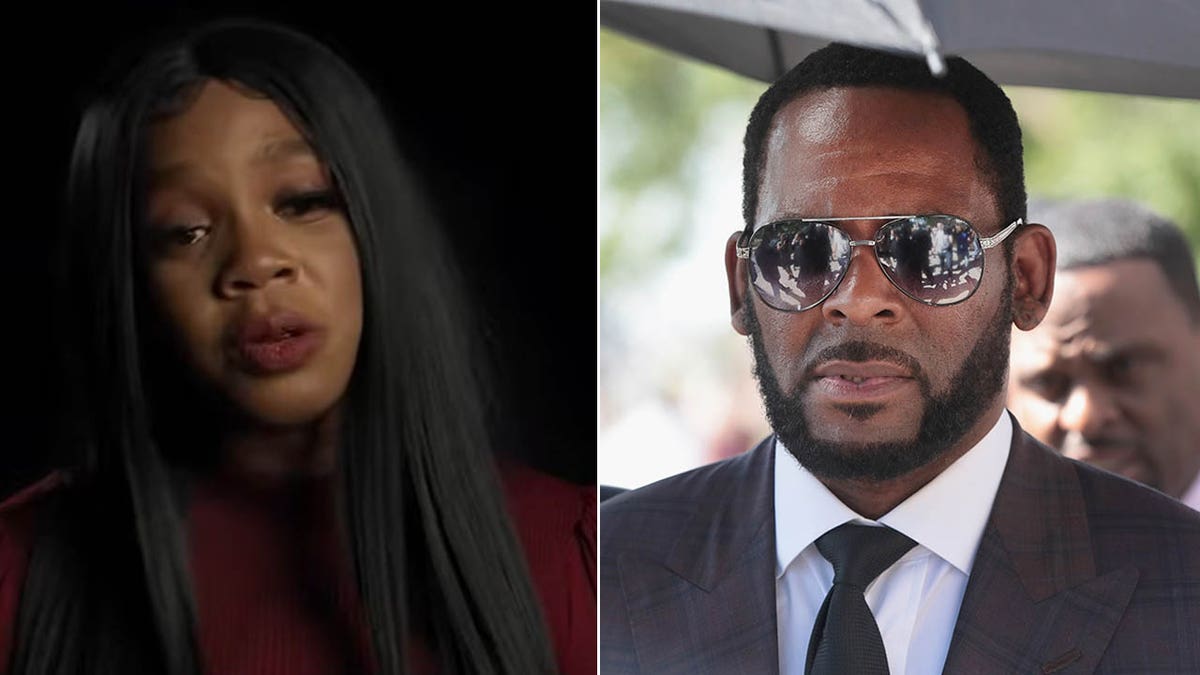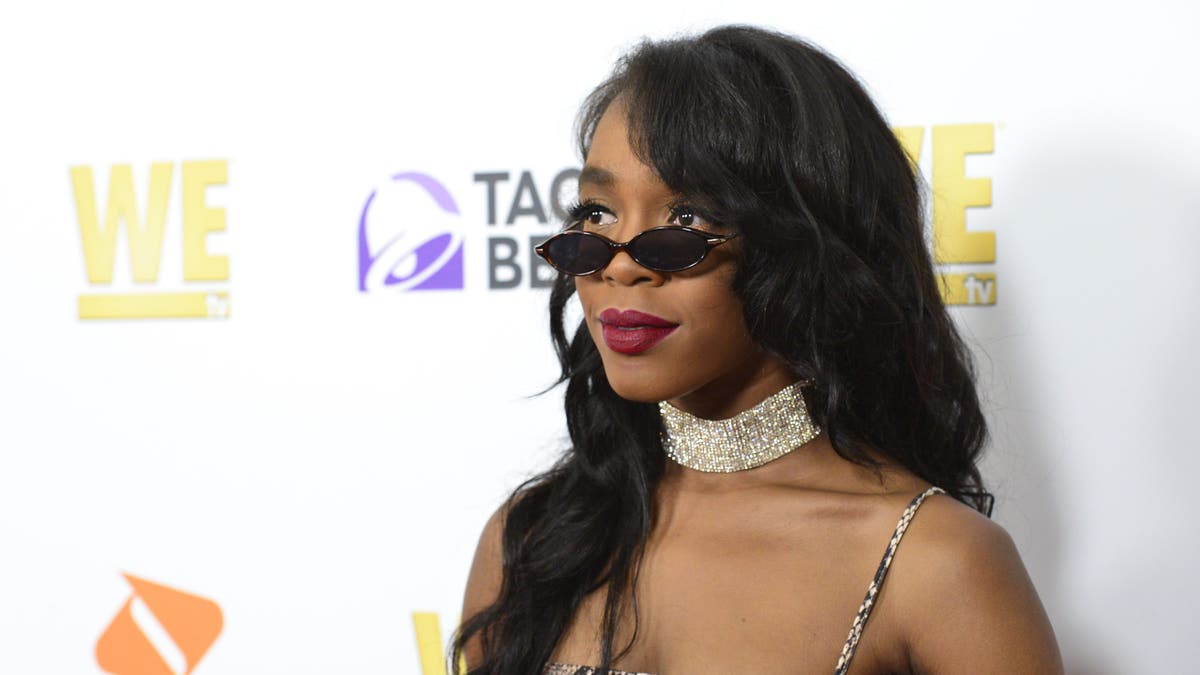The Heartbreaking Allegations: Buku Abi’s Journey and R. Kelly’s Legacy
In recent years, the narrative surrounding R. Kelly has shifted dramatically from that of a celebrated R&B icon to a figure embroiled in serious legal battles and personal tragedy.
The latest chapter in this evolving story comes from his daughter, Buku Abi, who has bravely come forward with allegations of sexual abuse against her father.
In the new docuseries titled “R. Kelly’s Karma: A Daughter’s Journey,” Abi, now 26, recounts her traumatic experiences as a child and the profound impact they have had on her life.
Her testimony not only sheds light on the personal ramifications of her father’s actions but also raises critical questions about the legacy of an artist whose contributions to music are now overshadowed by his heinous crimes.
Buku Abi’s Allegations
In the docuseries, Buku Abi, whose birth name is Joann Kelly, alleges that R. Kelly sexually abused her when she was just 8 or 9 years old.
She describes a traumatic incident during a party at their home, where she chose to sleep in her father’s office rather than her own room.
Abi recalls waking up to find her father touching her, a moment that she describes as life-altering.
“I remember waking up to him touching me, and I didn’t know what to do,” she said tearfully.
“I just kind of laid there and pretended to be asleep.”
This chilling account reveals the confusion and fear that many victims of abuse experience, particularly when the abuser is a trusted family member.

The Impact of Abuse on Abi’s Life
Buku Abi’s allegations come with a heavy emotional toll.
She expresses how the trauma from that single moment changed her entire life.
“I really feel like that one millisecond completely just changed my whole life and changed who I was as a person,” Abi said in the documentary.
The psychological effects of such abuse can be profound and long-lasting, often leading to struggles with mental health, self-esteem, and interpersonal relationships.
Abi has openly discussed her battles with depression and suicidal thoughts, which she attributes to the trauma she endured as a child.
“I spent about two and a half weeks in a mental hospital and attempted suicide multiple times due to the alleged sexual assault,” she revealed.
These statements highlight the urgent need for support and resources for survivors of abuse, particularly when the perpetrator is a public figure.
Reporting the Abuse
Abi claims that she reported the alleged abuse to her mother, Andrea Kelly, when she was just 10 years old.
This moment marked a turning point in her life, as she sought to confront the trauma she had endured.
After disclosing the abuse, Abi and her mother went to the police to file a report.
However, the legal system’s response was less than satisfactory.
“Because I waited so long to say anything, they really couldn’t do anything about it,” she explained.
This experience underscores a common issue faced by many survivors: the challenges of navigating the legal system, especially when it comes to cases of childhood abuse.
Abi’s feelings of frustration and helplessness are palpable as she reflects on her attempts to seek justice.
The Response from R. Kelly and His Legal Team
In response to Abi’s allegations, R. Kelly’s attorney, Jennifer Bonjean, issued a statement vehemently denying the claims.
She argued that similar allegations made by Kelly’s ex-wife had previously been investigated and deemed unfounded by the Illinois Department of Children & Family Services.
Bonjean also criticized the filmmakers of the docuseries for not reaching out to Kelly or his team to allow for a response to these serious accusations.
This defense reflects a broader pattern often seen in cases of abuse, where the accused may seek to discredit the testimony of survivors rather than engage with the realities of their experiences.
As Kelly serves a 30-year prison sentence for racketeering and sex trafficking, the validity of Abi’s allegations adds another layer of complexity to his already fractured legacy.
The Broader Implications of Abi’s Story
Buku Abi’s courageous decision to share her story has far-reaching implications, not only for her own healing journey but also for the broader conversation surrounding abuse and accountability in the entertainment industry.
Her allegations serve as a stark reminder of the impact that power dynamics can have within families, particularly when one member holds significant influence and status.
The entertainment industry has long grappled with issues of abuse and misconduct, and Abi’s testimony contributes to the growing movement advocating for survivors’ voices to be heard and validated.
As more individuals come forward with their stories, it becomes increasingly difficult to ignore the systemic issues that allow such abuses to persist.

Navigating the Legacy of R. Kelly
R. Kelly’s legacy is now a contentious subject, as fans and critics alike struggle to reconcile his musical contributions with the serious allegations against him.
Once celebrated as the “King of R&B,” Kelly’s catalog is now viewed through a lens of pain and trauma.
While many still appreciate his musical talent, the question remains: can we separate the art from the artist?
This debate is particularly relevant in light of Abi’s allegations, as they highlight the personal cost of Kelly’s actions on those closest to him.
For some, the emotional connection to Kelly’s music may overshadow the realities of his behavior, while for others, celebrating his artistry feels like a betrayal to the victims.
Cultural Context and the Role of Celebrity
The cultural context surrounding R. Kelly’s case is crucial to understanding the broader implications of his actions.
As a prominent figure in the music industry, Kelly’s influence extends far beyond his own career.
He has shaped the sound of contemporary R&B, impacting countless artists who have followed in his footsteps.
However, with this influence comes a responsibility to acknowledge the consequences of one’s actions.
The entertainment industry is beginning to confront the realities of abuse and misconduct, and Abi’s story serves as a catalyst for change.
By sharing her experiences, she is challenging the status quo and urging society to hold powerful individuals accountable for their actions.

The Importance of Support for Survivors
Buku Abi’s journey underscores the critical need for support systems for survivors of abuse.
Many individuals face significant barriers when it comes to reporting abuse, including fear of disbelief, shame, and the potential for retaliation.
Creating a culture that encourages open dialogue and provides resources for survivors is essential in fostering healing and preventing future abuse.
Abi’s story serves as a poignant reminder of the importance of listening to and believing survivors, as well as the need for comprehensive support systems within communities.
Conclusion: A Call for Change
As R. Kelly continues to serve his prison sentence, the revelations from his daughter Buku Abi add a new layer of complexity to his already tarnished legacy.
Her allegations of sexual abuse are a tragic reminder of the profound impact that such trauma can have on individuals and families.
As society grapples with the realities of abuse and accountability, it is crucial to prioritize the voices of survivors and advocate for systemic change.
Buku Abi’s courage in sharing her story is a powerful testament to the resilience of survivors and the importance of creating a culture that supports healing and justice.
In doing so, we can work towards a future where the voices of survivors are heard, validated, and respected, and where those who perpetrate abuse are held accountable for their actions.
The journey towards healing and justice is long, but it begins with acknowledging the truth and standing in solidarity with those who have suffered.
As we reflect on R. Kelly’s legacy, let us strive to create a world where art can be celebrated without compromising the dignity and rights of survivors.

